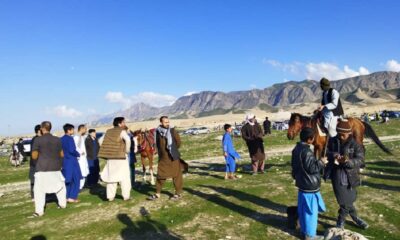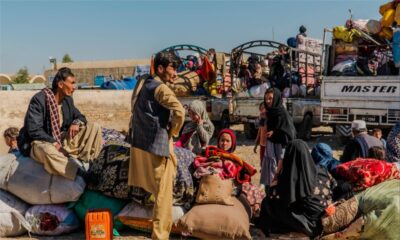Latest News
Biden spoke with families of Americans detained in Afghanistan, White House says
Efforts to secure the release of the Americans continue, a second source familiar with the initiative told Reuters on Sunday.
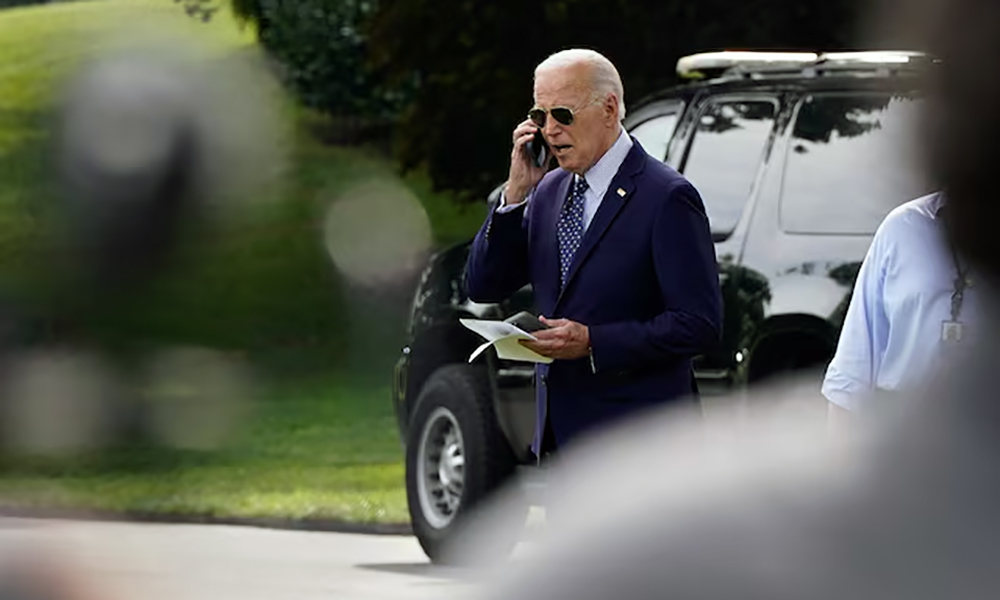
US President Joe Biden spoke on Sunday with the families of three Americans detained in Afghanistan since 2022, and emphasized his commitment to bringing home Americans wrongfully held overseas, the White House said.
Biden’s administration has been negotiating with the Islamic Emirate since at least July about a US proposal to release the three Americans – Ryan Corbett, George Glezmann and Mahmood Habibi – in exchange for Muhammad Rahim al-Afghani, a high-profile prisoner held in Guantanamo Bay, Reuters reported last week, citing a source familiar with the discussions.
Efforts to secure the release of the Americans continue, a second source familiar with the initiative told Reuters on Sunday.
Corbett and Habibi were detained in separate incidents in August 2022 a year after the IEA regained control of the country.
Glezmann was detained later in 2022 while visiting as a tourist.
Ahmad Habibi, Mahmood Habibi’s brother, who was on the call on Sunday, welcomed the discussion with Biden.
“President Biden was very clear in telling us that he would not trade Rahim if the Taliban (IEA) do not let my brother go,” he said.
“He said he would not leave him behind. My family is very grateful that he is standing up for my brother.”
The IEA, which denies holding Habibi, had countered the US proposal with an offer to exchange Glezmann and Corbett for Rahim and two others, one of the sources told Reuters last week.
The White House noted that Biden has brought home more than 75 Americans unjustly detained around the world, including from Myanmar, China, Gaza, Haiti, Iran, Russia, Rwanda, Venezuela and West Africa.
His administration also brought home all Americans detained in Afghanistan before the US military withdrawal, it said.
A Senate intelligence committee report on the agency’s so-called enhanced interrogation program called Rahim an “al Qaeda facilitator” and said he was arrested in Pakistan in June 2007 and “rendered” to the CIA the following month.
He was kept in a secret CIA “black site,” where he was subjected to tough interrogation methods, including extensive sleep deprivation, and then sent to Guantanamo Bay in March 2008, the report said.
Biden last week sent 11 Guantanamo detainees to Oman, reducing the prisoner population at the detention center in Cuba by nearly half as part of its effort to close the facility as the president prepares to leave office on Jan. 20.
Latest News
Health Minister slams deportations, says neighbors cannot accept Afghanistan’s progress
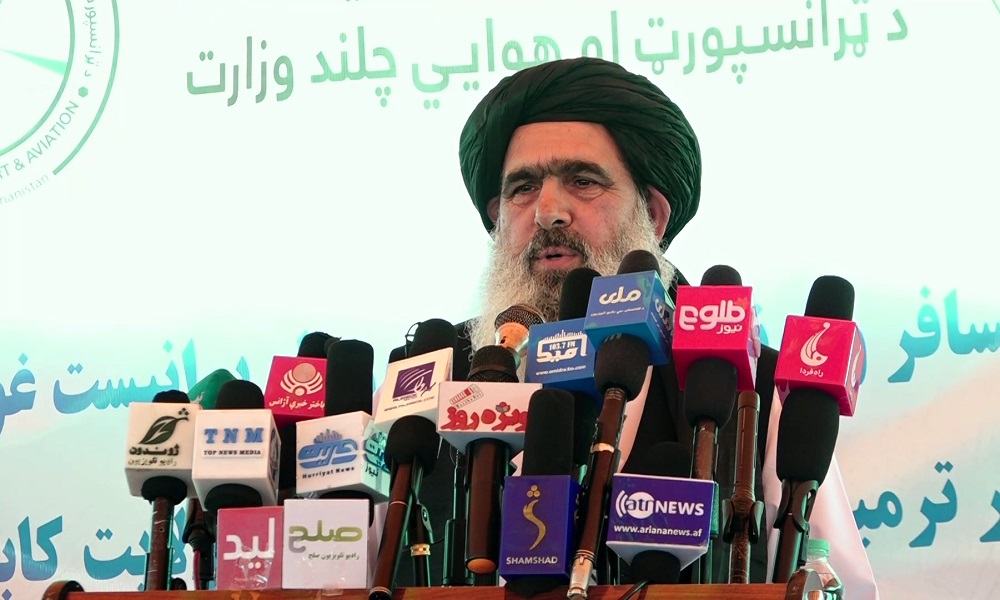
Acting Minister of Public Health Noor Jalal Jalali said on Sunday that Afghanistan’s neighbors cannot tolerate Afghanistan’s progress, so they harass migrants, confiscate their property and forcibly expel them.
“One has built a house and a life with his own power, but he is told that he has no right to take it with him,” Noor Jalal Jalali said at an event in Kabul. “He is beaten, humiliated and taken to a vehicle and is told to leave. Our brothers should return to their country even with the little money they have.”
Pakistan plans to expel three million Afghans from the country this year. Arrests have already begun in several cities.
Local officials in Nangarhar province say 316 families have entered the country through the Torkham crossing in the past three days.
“All the committees are ready,” said Azizullah Mustafa, deputy governor of Nangarhar. “In the last two or three days, 316 families have been expelled. There is the service committee. We have also contacted the center. Allah willing, we have the facilities. We will also meet with institutions to coordinate the process.”
About 845,000 Afghans have left Pakistan over the past 18 months, figures from the International Organization for Migration show.
The deportations come despite criticism from human rights groups.
Latest News
Thousands of local tourists flock to Balkh over Eid-ul-Fitr
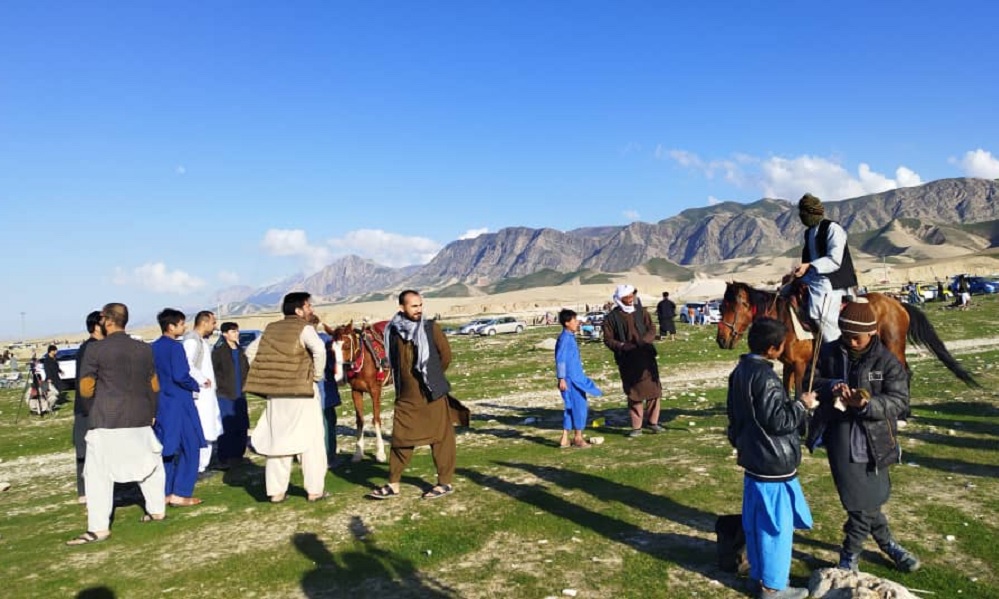
More than 12,000 local tourists, along with 21 foreigners, visited Balkh province in northern Afghanistan over Eid-ul-Fitr, Balkh Information and Culture Department officials confirmed.
According to the officials, the tourists visited recreational areas and historical sites during the three-day Eid holiday period.
Tourists visiting the province said they were happy about the improved security situation but called for more recreational areas.
One popular area was Marmul district, which lies about 20 km west of Mazar-e-Sharif, the provincial capital. Visitors said however they would have liked to see more restaurants, mosques, markets and other facilities.
Local officials in Balkh said efforts are being made to create facilities in recreational areas in the province.
In addition to Marmul, other popular destinations in Balkh for visitors this Eid was the Qosh Tepa Canal, Dasht-e-Shadian, Amu River and Chashma-e-Khaja Sikandar.
Latest News
UN rights experts call on Pakistan to stop removal process of Afghan refugees
The experts urged Islamabad to immediately stop mass internal relocations, deportations, arrests, evictions, intimidation and other pressures on Afghans
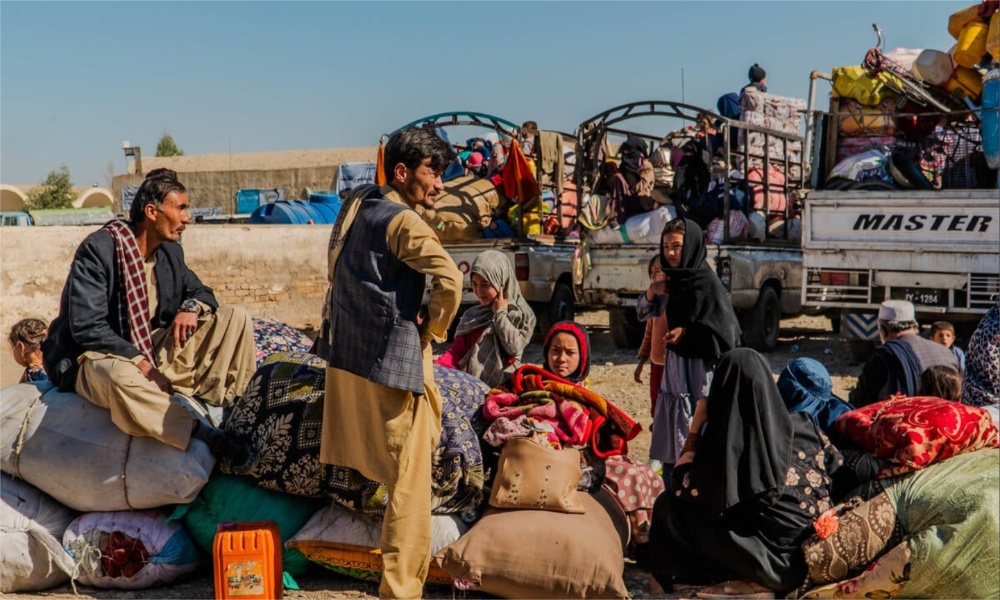
UN human rights experts have called on the Pakistan government to stop their plans to forcibly remove Afghans from the cities of Islamabad and Rawalpindi, nor to deport them to Afghanistan.
According to a statement issued on Friday, the UN experts (as listed below) called on Pakistan to continue its important role as a neighboring country with a long history of hosting Afghan refugees.
The deadline for their voluntary departure was set for 31 March, but Islamabad moved the deadline by a few days to take Eid-ul-Fitr into account.
“Millions of Afghans in Pakistan are at risk of being pushed back to Afghanistan without regard for their genuine protection concerns – including gender-based violence and the systematic dismantling of the rights of women and girls – in violation of international human rights law and refugee law, and disregarding UNHCR’s non-return advisory,” the experts said.
“We urge Pakistan to immediately stop mass internal relocations, deportations, arrests, evictions, intimidation and other pressures on Afghans to cross the border into Afghanistan, and to uphold the absolute and non-derogable principle of non-refoulement,” they said.
The experts expressed particular concern about the gendered and intersectional impact.
The UN experts have repeatedly spoken out against Pakistan’s Illegal Foreigners’ Repatriation Plan of September 2023, which has already pressured hundreds of thousands of Afghans to uproot their lives and return to Afghanistan.
Ahead of the 31 March deadline, the UN documented a worrying increase in arrests of Afghans. Many desperate Afghans have contacted the experts, fearing persecution by the Taliban in Afghanistan if they are forced to return.
“The most vulnerable are Afghan women, girls, LGBTI persons, ethnic and religious minorities, former government officials and security personnel, human rights defenders, and media workers,” the experts said.
“Children, especially unaccompanied, are at heightened risk of trafficking, child marriage and abuse, while persons with disabilities and older persons are also particularly vulnerable. They should all be individually assessed.”
The experts expressed concern about returns of Afghans to Afghanistan from other countries, potentially contravening international human rights and refugee law.
The experts also acknowledged security risks, including terrorist attacks in Afghanistan, as well as Pakistan.
The experts noted that many Afghans who had left for Pakistan, having been given reasonable expectations of being resettled in a third country, had their dreams of a secure future shattered by the sudden halt of resettlement programmes.
They stressed that funding cuts will reduce the ability of the de facto authorities in Afghanistan, together with humanitarian agencies, to support a large influx of people from neighboring countries.
“Abrupt and drastic funding cuts by donors are already having a severe impact on much-needed humanitarian assistance to Afghans,” the experts said.
“Given the deteriorating human rights situation in Afghanistan, durable solutions are needed for Afghans outside the country, with strong support from the broader international community.”
The experts are as follows:
Richard Bennett, Special Rapporteur on the human rights situation in Afghanistan; Siobhán Mullally, Special Rapporteur on trafficking in persons, especially women and children; Laura Nyirinkindi (Chair), Claudia Flores (Vice-Chair), Dorothy Estrada Tanck, Ivana Krstić, and Haina Lu, Working group on discrimination against women and girls; Ben Saul, Special Rapporteur on the promotion and protection of human rights and fundamental freedoms while countering terrorism; Reem Alsalem, Special Rapporteur on violence against women and girls, its causes and consequences; and Balakrishnan Rajagopal, Special Rapporteur on the right to adequate housing.
-

 Latest News5 days ago
Latest News5 days agoMinistry of Economy calls on US to release Afghanistan’s frozen funds
-

 Latest News4 days ago
Latest News4 days agoPakistan ‘extends’ deadline for a week for Afghans to leave the country
-

 World5 days ago
World5 days agoAs Iran tensions build, US military moves warplanes to reinforce Middle East
-

 Sport5 days ago
Sport5 days agoIPL 2025: Batters in race for prestigious Orange Cap
-
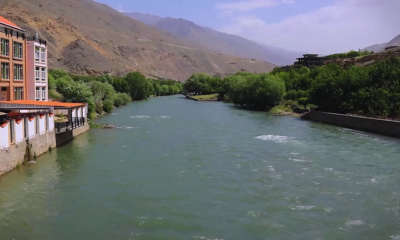
 Latest News4 days ago
Latest News4 days agoPanjshir to Kabul water conduit project ‘waiting for budget approval’
-
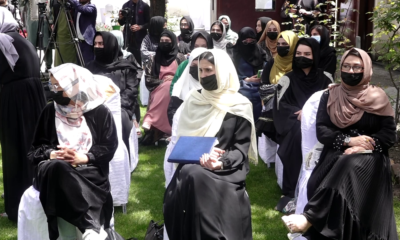
 Latest News4 days ago
Latest News4 days agoFemale journalists complain about lack of access to accurate and timely information
-

 Business4 days ago
Business4 days agoExports to Pakistan grind to a halt over faulty scanner at Torkham
-

 Regional4 days ago
Regional4 days agoMilitary confrontation seems inevitable if no new Iran nuclear deal, France says




